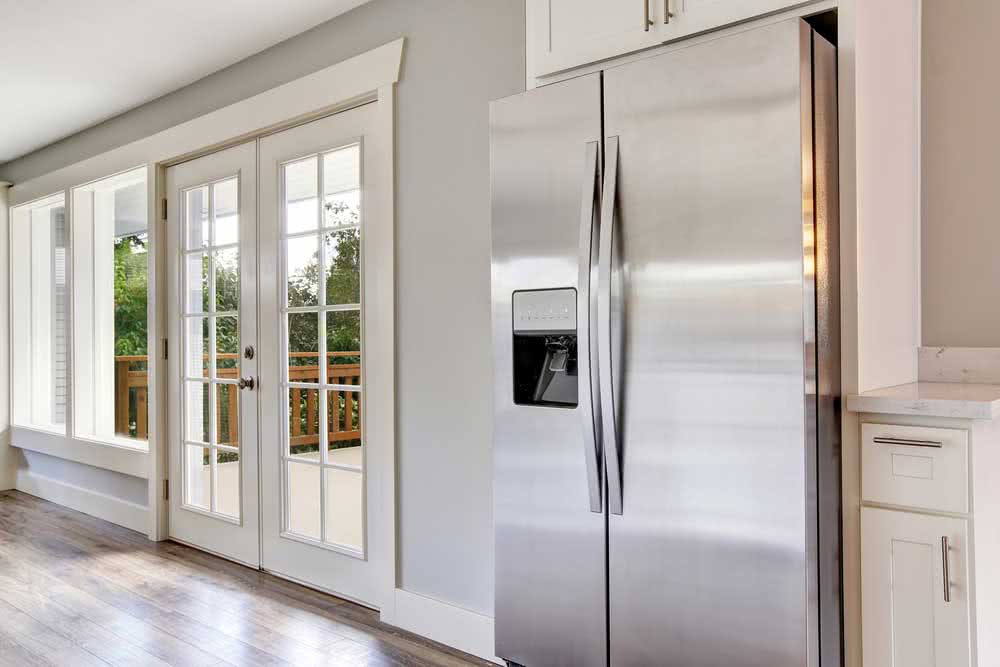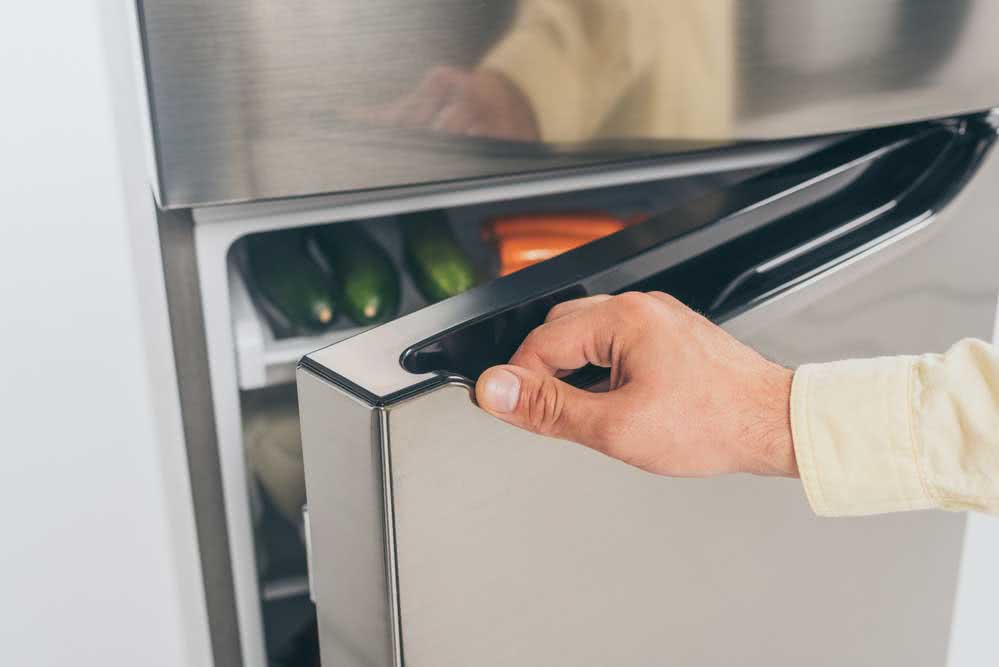It is a bird? Is it an airplane? No! It’s just the fridge making noise (again). If your refrigerator is like this, noisy and full of noises, don’t despair.
It could be that she is just doing her job, but it could also be that she is in trouble.
And in today’s post we’re going to help you differentiate these sinister noises and thus find out why the fridge is making noise. Check out.
Normal refrigerator sounds and noises

The refrigerator, by nature, is a noisy appliance. In the grid most of the time, it emits sounds that indicate that everything is working properly. See below what these sounds are:
bubble sound
The sound of bubbles is similar to a bubbling water noise and can be heard every time you open and close the refrigerator. This noise is normal, don’t worry. It happens because of the refrigerated air that circulates inside the device.
This bubbling sound is also characteristic of the water circulating inside the device, in the case of refrigerators that use taps and hoses for the automatic supply of ice and filtration. Rest assured when you hear this sound.
popping sound
Another very common noise in refrigerators, which is also perfectly normal, is crackling. This sound is similar to falling pebbles and is caused by the expansion and contraction of the plastic parts of the refrigerator.
This “movement” in the device’s plates happens due to the temperature difference between the internal and external environment.
Crackling can also be caused by the peeling of the ice or after the refrigerator is closed, indicating a significant difference between the internal and external temperature.
Nothing to worry about, on the contrary, this sound indicates that the refrigerator is playing its role correctly.
buzzing sound
One more sound to get on your refrigerator’s soundtrack is the buzzing sound. This one is also harmless and indicates that the ice-making compartment is being filled with water. The higher the water pressure, the greater the buzzing sound tends to be.
Another reason for this buzzing sound is the start of a new compressor cycle. You can go back to sleep peacefully, because this noise is not harmful.
beep sound
The beeping sound, similar to the sound emitted by a microwave, indicates that the refrigerator door is open or something is preventing it from closing completely.
This sound is perfectly normal and even very welcome, as it helps to save energy and prevents damage to the device caused by incorrectly opening doors.
click sound
If you hear a small click in your refrigerator, it just means the thermostat has turned off after one of several temperature cycles.
whistle sound
This characteristic sound can usually be heard after opening the refrigerator and freezer doors. It indicates that air is circulating inside the device.
sound of balloon filling
The refrigerator can be a veritable factory to produce strange sounds. And one more to go on this list is the ballooning sound. So it is! If you hear something like that, don’t worry either. This noise usually indicates gas expansion in the refrigeration system. Something super normal.
sound of things banging
The sound similar to things falling and hitting is nothing more than the ice that was produced being stored in the cooler’s inner bucket. There’s nothing to worry about here.
Refrigerator making noise: sounds and noises that indicate problems

Luckily, most of the noises emitted by the refrigerator do not usually indicate problems or defects. But if you hear sounds similar to the ones we’ll list below, there may be some things you need to do. Just take a look:
vibrating sounds
It is natural for refrigerators to vibrate, however, this type of vibration should not be accompanied by noise.
Vibration sounds can be heard both outside and inside the device and the reason is almost always the same: unevenness.
To solve this problem make sure the floor where the refrigerator is placed is level. If you notice a difference in floor level, then the tip is to adjust the appliance feet. Most refrigerators have adjustable feet that can be adjusted according to floor level, just to avoid this problem.
If the vibration, however, comes from inside the device, check the shelves and products on it. It could be that something is wrongly seated, causing the vibrating sound.
rattling sound
The sound of rattles is also unnatural and is probably related to a bad installation or the proximity of the device to furniture and other objects.
The solution in this case is quite simple: just remove the device from the wall or nearby furniture. The recommendation is that the refrigerator be about 15 centimeters away from the wall or other objects and furniture.
It is also worth noting whether the products inside the refrigerator are well positioned. Cans and other objects may be causing the sound.
hissing sound
Hissing sounds that resemble birds can signal refrigerator fan problems.
Unplug the refrigerator and check the fan for signs of wear, corrosion, or loose wires. If you notice any irregularity, look for an authorized technical assistance, it may be necessary to replace some part.
Another reason for the squeaking sound is the doors, especially if they have been replaced or maintained. See if they have been replaced correctly. For prevention, adjust and retighten the screws. Take the opportunity to check the refrigerator’s rubber seal.
beat sound
If you hear your refrigerator emitting a sound that reminds you of knocks, pay attention to the functioning of the condenser and the motor. Most likely one of these components is malfunctioning and may need some repair or even replacement of parts. Call for service.
Sound from under the fridge
A persistent rattling sound coming from underneath the refrigerator may indicate that the drain pan is misplaced. In this case, just remove the tray and put it back in place, paying attention to the correct position of the piece.
Refrigerator making noise and does not freeze
But if your refrigerator is making noise and is not freezing, then the problem could be more serious. Generally in these cases, the defect comes from the condenser, motor or compressor. The best thing to do in this situation is to call a technician who can assess the problem and make any necessary repairs.
Do not try to make repairs yourself, unless you have knowledge of the matter, otherwise the damage may be greater than imagined.
What does the manufacturer’s manual say
It is also worth consulting the manufacturer’s instruction manual. There, you are almost always told the most common reasons for refrigerator noise and how you can solve them.
Does a silent refrigerator exist?
If you intend to change your refrigerator, know that there are already quieter refrigerator models on the market. They are not completely free from noise, after all, these sounds are necessary for the device to work.
But you can guarantee the purchase of a less “extravagant” appliance, shall we say. For this, it is worth researching the opinion of other people who have already purchased the product.



